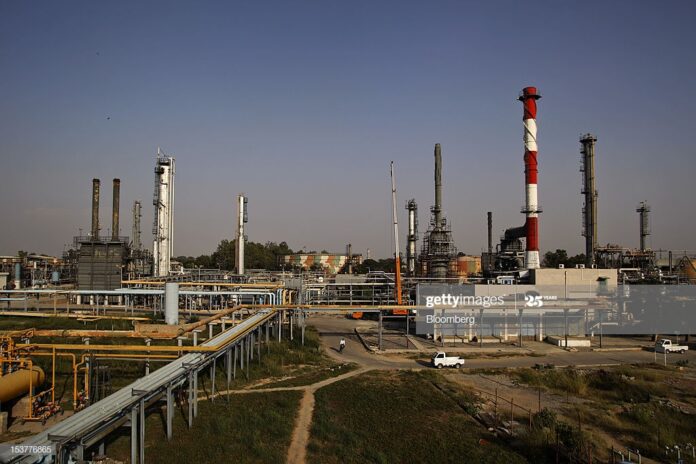KARACHI: The Attock Refinery Limited (ARL) is faced with an emergency that requires immediate attention, due to which it will be functioning at a 25% capacity for over five days.
The refinery disclosed the information to the Pakistan Stock Exchange (PSX) and investors early on Thursday morning. As per the notification, High Speed Diesel (HSD) upliftment by OMCs from ARL has been abysmally low in the preceding two months. It was disclosed to the PSX that they suspect their supply envelope to have been infiltrated by smuggled product, which has presented to be a predicament to the company.
Adding insult to injury, the refinery’s HSD stocks have also reached a concerningly high level, with little to no capacity left in their storage tanks. These conditions have created an impossible situation for the refinery, leaving them no choice but to shut down the main distillation unit for five days, in order to manage the critical levels and conduct essential maintenance on allied downstream units. In simpler words, the refinery will only be partially operational, at just around 25% of its capacity during these five days.
However, the letter reassured the recipients that the refinery has enough inventories of products to meet current requirements. It was also shared that the Ministry of Energy (Petroleum Division) and Oil & Gas Regulatory Authority (OGRA) has been informed accordingly, while also enclosing a disclosure form as prescribed under Notification SRO. No. 143(1)/2012 as Annexure – A.
What does Attock Refinery Limited do?
Attock Refinery Limited’s history dates back to 1922, back when it first pioneered crude oil refining in Pakistan. Ever since, the company has seen technological upgrading that has enabled it to continue being competitive. According to the company’s website, ARL’s current nameplate capacity stands at 53,400 barrels per day (BPD), and it has the capability to process the lightest to heaviest crudes. It is an ISO certified company and also holds the title of being the first refinery in Pakistan to implement an Energy Management System.
The refinery’s latest expansion and up-gradation project completed in November 2016, which included reducing Sulphur contents in High Speed Diesel, increasing refining capacity, enhancing production of Premium Motor Gasoline, and expanding its captive power plant. Moreover, its paid-up capital has increased from Rs 80 million to Rs 1,066.163 million, since it started.
A minor blip in the refinery’s operations
How can we understand the current situation and the low High Speed Diesel (HSD) upliftment?
According to Mustafa Mustansir, Director Research and Business Development at Taurus Securities, the current event might not have far-reaching financial consequences. “I don’t think it should have much financial impact, since they have sufficient inventory to sell if need be during these five days.”
However, Mustansir believes that the more serious problem that ARL faces at the moment is that of storage, “They have less space to store refined products, so the surplus inventory which they will try to manage by operating at a lower utilization level can be an issue.”
When inquired about the broader issue of smuggling and the actions that can be taken by ARL to prevent such an event from transpiring in the future, Mustansir told Profit, “As far as tackling smuggling is concerned refineries cannot do much. There are law enforcement and other government agencies to keep a check on all this.”




